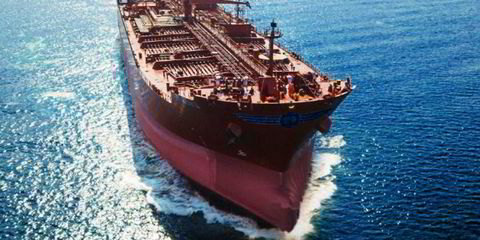Moves by state-owned Chinese oil and tanker companies to develop a blockchain-based trading system put renewed focus on the digitalisation of shipping.
Cosco Shipping Energy Transportation and China Merchants Energy Shipping want to use new technology to speed up transactions and save costs.
Surveys show that almost everyone in the industry believes blockchain-based systems will disrupt the status quo, as my colleague Max Tingyao Lin has reported.
The question is “when”, not “if”, and there is no doubt that pressure to use big data to drive down overheads will increase post-coronavirus.
Martin Wolf, chief economics commentator at the Financial Times and one of most respected voices in the business, predicted digitalisation would be a big winner after lockdown.
There are many aspects of this with regard to the maritime world — from blockchain itself to online chartering; from smart or unmanned ships to artificial intelligence.
And there is nothing new about it. Let’s remember the ill-fated LevelSeas online chartering business that was launched at the height of the dotcom boom 20 years ago. The platform had the support of industry heavyweights Clarksons, Shell and BHP Billiton, but still failed to make any impact and was wound down.
There have been maritime conferences on “Uberising” shipping since then, and HSBC and Cargill boasted about completing the first trade-finance transaction using blockchain in 2018.
There is no doubt that pressure to use big data to drive down overheads will increase post-coronavirus
We have also seen a host of projects in recent months, not so different from the one outlined last week by the Chinese tanker companies with the help of Macquarie and others.
Indeed, the container arm of Cosco, alongside European liner companies such as CMA CGM and Hapag-Lloyd, set up a Global Shipping Business Network (GSBN) blockchain scheme.
An earlier incarnation also involved Taiwan’s Evergreen and Yang Ming Marine Transport, but they were left out of the latest venture. Was that about politics or commercial differences?
And the world’s largest liner operator, AP Moller-Maersk, is pursuing yet another blockchain platform, TradeLens, with the help of IBM.
CMA CGM and Hapag-Lloyd are members of TradeLens and GSBN, which have various port owners involved too.
Highly desirable
The goals of all these initiatives are highly desirable for the industry — if not for the human side of the business. Job losses are inevitable, as has been seen in other sectors in which this kind of new technology has been introduced. But cost savings are a key part of this.
And everyone accepts that this technology works only if, as the latest Chinese initiative explains, everyone is involved, from vessel chartering to cargo discharge.
“If bills of lading [and] warehouse receipts can be digitalised and programmed, structured financing can become seamless. This would allow demurrage and other fees in shipping contracts to be paid and authenticated automatically,” said the Cosco Shipping and China Merchants-backed report last week.
No doubt these schemes will work on a limited basis, but there needs to be a universally accepted platform to really change the maritime world.
And in a conservative, fragmented and highly competitive industry, it is not easy to build globally the key ingredient that makes all shipping projects fly: trust.







